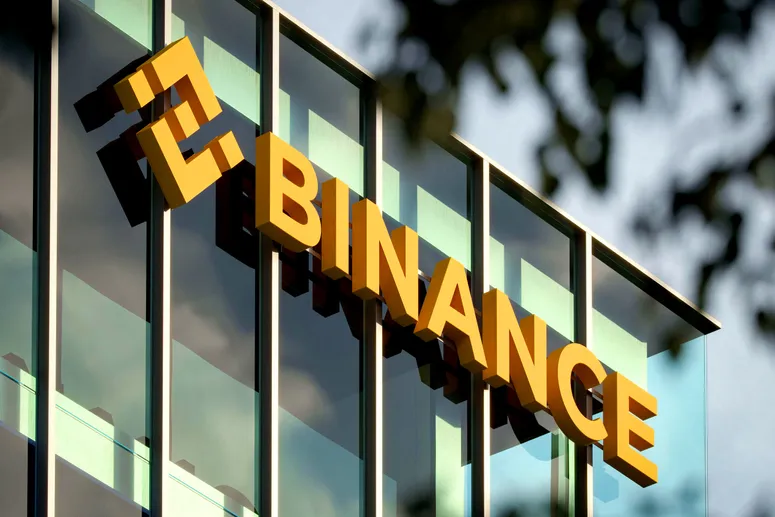Changpeng Zhao, the founder of Binance, pleaded guilty to violating criminal anti-money-laundering guidelines and agreed to a significant settlement with federal authorities. This action comes as a major setback for Binance, the world’s largest cryptocurrency exchange, leading to a $4.3 billion fine — one of the largest ever levied against a corporation. Zhao himself faces up to 18 months in prison for violating the Bank Secrecy Act, along with a $50 million fine and a three-year prohibition from working with the exchange. He also agreed to step down as the chief executive of Binance, to be replaced by Richard Teng, the company’s global head of regional markets.
To summarize the key points of this case:
- Changpeng Zhao and Binance pleaded guilty to violating criminal anti-money-laundering guidelines, leading to a $4.3 billion fine for the company, one of the largest ever levied against a corporation.
- Zhao agreed to step down as CEO as part of the plea agreement, which also includes him facing up to 18 months in prison for violating the Bank Secrecy Act, a $50 million fine, and a bar from working with the exchange for three years.
- The guilty plea was the result of a three-year investigation by the Justice Department, focusing on Binance’s failure to comply with the Bank Secrecy Act, its unregistered money-transfer business operations, and violations of sanctions law.
- The investigation highlighted Binance’s lack of anti-money laundering measures, allowing nearly $900 million in transactions that violated sanctions against Iran, and its efforts to evade U.S. regulatory oversight.
- Zhao’s resignation and the guilty plea were framed as taking responsibility for these issues, aiming to prioritize the community, Binance, and his personal accountability.
Reasons Why CZ Cannot Leave the USA
- Flight Risk: A federal judge ruled that CZ’s “enormous wealth” and lack of ties to the United States pose a significant flight risk, reversing a previous decision that would have allowed him to return to his home in the United Arab Emirates (UAE) before sentencing. His family resides in the UAE, and he is considered to have favored status there, further increasing the risk that he might not return for his sentencing.
- No Extradition Treaty: The U.S. has no extradition treaty with the UAE, making it extremely difficult for U.S. authorities to ensure CZ’s return if he were allowed to leave.
- Wealth and Property Abroad: The judge emphasized CZ’s substantial wealth and property outside the United States as factors contributing to the flight risk.
Duration CZ Must Remain in the USA
- CZ must remain in the U.S. until his sentencing, which is scheduled for February 23, 2024.
Charges and Fines After Pleading Guilty
- Charges: CZ pleaded guilty to violating the Bank Secrecy Act, which involves breaking anti-money laundering laws in the U.S. Binance, the company he founded, also pleaded guilty to charges related to violating sanctions and money transmission laws.
- Financial Penalties:
- Binance agreed to pay a $4.3 billion fine as part of the settlement.
- CZ personally agreed to pay a $50 million fine as part of his plea agreement.
- Additionally, CZ will pay a $150 million penalty to the U.S. Commodity Futures Trading Commission (CFTC) as part of the agreement.
Potential Sentence
- CZ faces a potential sentence ranging from a few months to as much as 10 years in prison, although he can appeal any sentence longer than 18 months.
Counteractions Against the Judge’s Decision
- Appeal: CZ can appeal the judge’s decision to restrict his travel. An appeal would be reviewed by a higher court, which could overturn the lower court’s decision if it finds an error in law or procedure.
- Bail Modification Request: CZ could request a modification of his bail conditions, arguing for new evidence or changes in circumstances that could mitigate the court’s flight risk concerns.
- Compliance and Cooperation: Demonstrating further compliance and cooperation with U.S. authorities might also be used to argue for modified conditions, although this would likely not directly counter the travel restriction but could influence considerations related to his sentencing or future legal obligations.
The judge’s ruling reflects concerns over CZ’s ability and incentive to return to the U.S. for sentencing, given his significant resources and the absence of formal legal mechanisms to ensure his return from the UAE. The legal strategies CZ and his defense might employ to counter or comply with the judge’s decision will be crucial in the coming months leading up to his sentencing.
The post Binance chief Changpeng Zhao (CZ) admits to violating U.S. laws, pleads guilty, resigns as CEO of Binance and Why can’t he leave the USA. first appeared on BTC Wires.
Credit: Source link






















 Bitcoin
Bitcoin  Ethereum
Ethereum  XRP
XRP  Tether
Tether  Solana
Solana  USDC
USDC  Dogecoin
Dogecoin  Cardano
Cardano  Lido Staked Ether
Lido Staked Ether  TRON
TRON  Wrapped Bitcoin
Wrapped Bitcoin  Wrapped stETH
Wrapped stETH  Chainlink
Chainlink  Avalanche
Avalanche  Sui
Sui  Stellar
Stellar  Litecoin
Litecoin  Toncoin
Toncoin  Shiba Inu
Shiba Inu  Hedera
Hedera  LEO Token
LEO Token  USDS
USDS  Hyperliquid
Hyperliquid  Polkadot
Polkadot  WETH
WETH  MANTRA
MANTRA  Bitcoin Cash
Bitcoin Cash  Bitget Token
Bitget Token  Ethena USDe
Ethena USDe  Wrapped eETH
Wrapped eETH  Uniswap
Uniswap  Monero
Monero  NEAR Protocol
NEAR Protocol  Pepe
Pepe  WhiteBIT Coin
WhiteBIT Coin  Ondo
Ondo  Aave
Aave  Bittensor
Bittensor  Aptos
Aptos  Internet Computer
Internet Computer  Dai
Dai  Official Trump
Official Trump  Mantle
Mantle  Ethereum Classic
Ethereum Classic  OKB
OKB  Tokenize Xchange
Tokenize Xchange  Gate
Gate  sUSDS
sUSDS  Sonic (prev. FTM)
Sonic (prev. FTM) 
